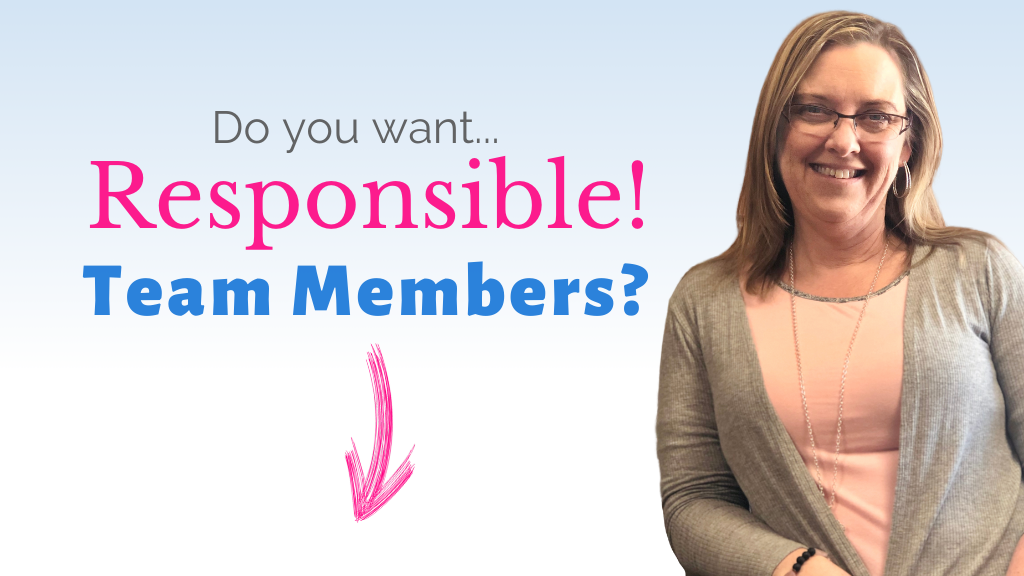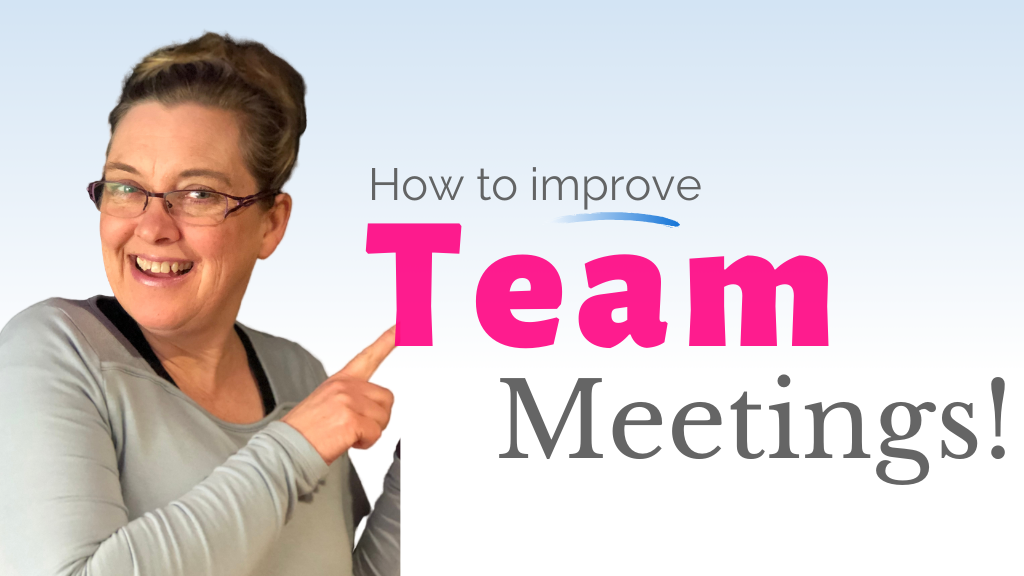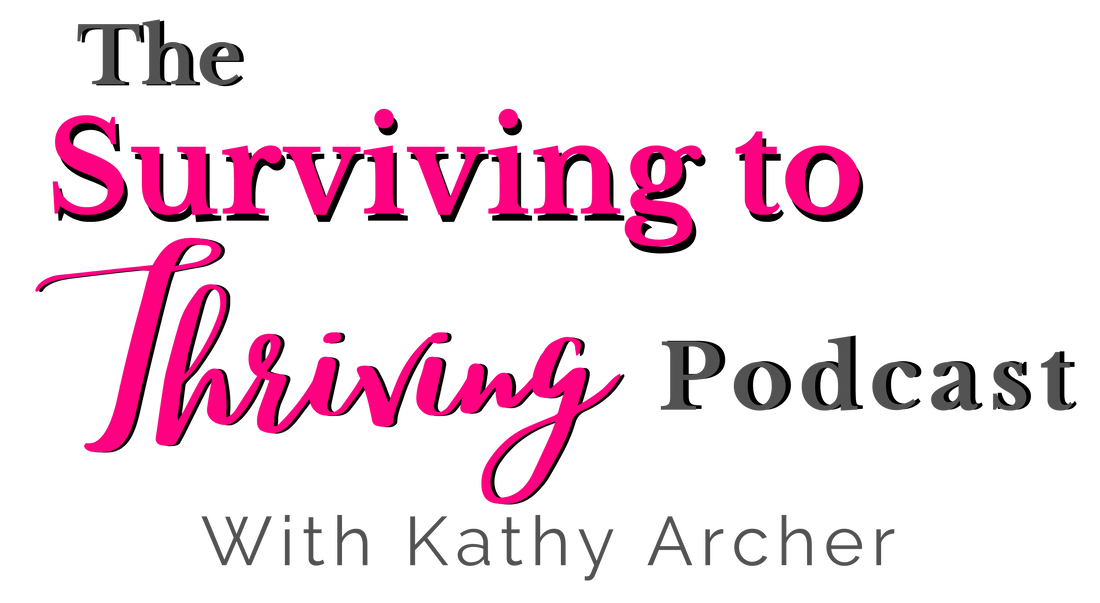|
Have you ever had someone in your life that won't change? They want things to turn around in their life, but they refuse to take responsibility for any of those changes. I have one of those people in my life now. She's driving me crazy!
Ugh! I want to shake her and say:
I've tried to help: I have encouraged her, coached her and given her tons of resources that will help her start turning her life around. However, she won't take it: Instead of utilizing those resources, she sits in her pity party, belly aching and complaining about others, blaming them and waiting for them to change. You can lead a horse 🐴 to water, but you can't make them drink. So….my mantra has become: I am not going to give up my happy because you can't find your happy! I became responsible for my happiness I'm taking responsibility for my life and my experiences, even though she chooses not to.
I also recognize I do the same thing This experience has been a great reminder to me of where I, too, put myself in that place of complaining and belly aching. What about you? Like me, do you sometimes have your own pity party? Do you wait as I do? Women like us are strong, capable and confident, except when we aren't. If you are like most women and like me, there are places we show up full of courage and determination.
We wait, blame and finger point...at least I do Can you think of any areas in your life where you are doing that? I can! I can see where I wait for someone else to "do it with me" for the money to "do it" for the time to "fit it in" or for the person to get out of my way, so I can "do it." Let me give you some examples EXAMPLE # 1 I've spent the last year looking for places that might interview me for podcasts, but have found few that "fit" me. However, the truth is, when I pause and ponder, I see different perspectives and realize that it is just an excuse.
EXAMPLE # 2 Another example is where I've wanted to remodel my daughter's bedroom and turn it into my den. She moved out almost a year ago. But, it wasn't the right time to do the renovations. We didn't have time, and of course, she might move back. Then, I didn't have my husband's help, and it would cost money.
EXAMPLE # 3 Here is another way I've not taken responsibility: There is a person on my team who isn't pulling their weight. They only show up for some meetings. But they are always unprepared. What's more, when you ask them to take on a task, they say they will. But you can bet there is a 90% chance they won't do it, and someone else will have to pick up the pieces. And what have I done about it? Nothing! I complain. I hope they will change. I wait. Waiting leaves me feeling like a victim of their incompetence, their insensitivity to others and their lack of commitment. And that sucks!
When we don't take responsibility, we become victims When we become victims, we feel powerless. At times, we try to force things, push people and make them do something, so our lives and situations are better. We try to have power over them. That creates more tension and turmoil. We need to take our power back...our inner power! Instead of feeling like a victim, we need to take our power back. We need to become responsible for what's going on. I call it response-able. It means we are able to respond. Too often, women like us feel like there is nothing we can do about it. We wait, hope and pray things will change. We moan and groan to whoever will listen (my poor hubby!) But when we take our inner power back, we gain the confidence, courage to become response-able to make changes in our lives, on our teams and in the world. Take control of your thoughts Our thoughts create our worlds. I can spend time getting angry and frustrated with that individual in my life that is driving me nuts. Or
I can feel like there is no place to share my ideas on podcasts that "fit" me. Or
I can wait for the right time, help etc. to redecorate my daughter's room. Or
I can wait for that person on my team to change. Or
Instead of feeling powerless, become response-able.
If you need some help with this learn more about becoming response-able here. You will also find a worksheet to help you take back your inner power here. In case you haven't figured it out yet you teach your team to take responsibility when you role model it to them :-)
2 Comments
If you are like most leaders, you struggle to run effective meetings. In this post you’ll discover 15 resources to help you run better team meetings. The urge will be to scroll to the bottom and grab them. To make those resources even more effective, take a moment to step into Cindy’s kitchen…. Imagine a young girl, Cindy is in the kitchen with her grandma, who is teaching Cindy how to bake buns. Cindy hopes to learn how to make buns that the whole family raves about as they do her grandmas. As the older lady hovers over Cindy’s shoulder, she guides Cindy through the process.
Yet, after all that guidance, Cindy’s buns flop! What the heck! Cindy then... Go back to that movie in your mind of the scene in the kitchen. Look a little closer at Cindy as she was being taught how to bake. Did you notice she had earplugs in her ears? As her grandma was teaching, mentoring and coaching her, Cindy never heard a word her grandma said! Cindy just did it her way. If you could get into Cindy’s head, you may have even heard her say: Hurry up, Grandma, I’ve got things to do outside! It’s no wonder Cindy struggled to learn how to bake stellar buns! Cindy now... Cindy now leads a team of frontline workers in a small nonprofit. Instead of trying to figure out how to bake buns, Cindy is currently struggling with team meetings. Each go-around, Cindy brings her agenda and stacks of handouts to the meeting. As she works her way through the items, the room is relatively quiet. No one participates. They don’t volunteer ideas or add value to the conversation. Team members don’t offer to help out when she asks for volunteers, so Cindy assigns tasks. When Cindy gets to the sensitive topics, she feels everyone tense up, and Cindy prays that no one will push back today as has happened during the past. Cindy hopes things will change Each go-around, Cindy goes in, hoping something will be different.
But nothing changes. After the meeting, Cindy tosses her stack of notes on her desk and lets out a sigh. Another one done. Cindy doesn’t have to worry about team meetings again until the next one. Hope without action is futile! Here’s the problem, if Cindy wants something different, she needs to do something different. If Cindy desires increased team engagement, buy-in and action, she would need to change something she is doing. Last week, we talked about hoping things change. And we learned that without action, hope is futile. Hope alone won’t make the difference. Are you like Cindy? Cindy is like many women leaders. They don’t take the time to learn new things. Despite tons of resources, guides, coaches and mentors available to them, many leaders tune the learning opportunities out. I get it...Nonprofits are tough! Nonprofits are notorious for being crisis-driven. There is always something demanding your attention. If it isn’t a client crisis, it’s team drama, the fundraising event, a shortage of staff, proposal or grant writing, year-end or accreditation time. Stress, busyness and crises never end. 2 beliefs that don't help Therefore, most women leaders believe they don’t have the time to step back and learn how to run better meetings, create more engaged employees, improve team culture or find improved work-life balance. What’s more, they often don’t believe nonprofit specific resources and training are readily available. Let me provide insight on both of those points. 1) You won’t find the time. You need to make time. What’s more, it won’t take a lot of time, just intentionality. 2) There are a plethora of nonprofit resources available. There is no lack of training, books, courses, blogs, podcasts, trainers, coaches or mentors available to nonprofit leaders. But if the podcast is never listened to or the course never worked on, you won’t learn. If you don’t invest the time (action) to learn and then the energy to practice (more action), all the hope in the world won’t change the outcome of your team meetings. To improve your team meetings, you need to do 3 things: 1) Take responsibility for improving your team meetings. No more waiting, hoping or blaming. 2) Commit to growing yourself. In this week’s video I talked about how to think your way to thriving. In the video you will learn how to use your growth mindset to organize your learning and growth. 3) Add action to your hope. Start with the resources below. When you commit to ongoing personal and professional development you’ll find more success leading highly engaged and effective teams. Oh, and bonus….you’ll be happier! Do you want to be more focused and intentional about your growth and development? Join me on Feb. 20th for this month's webinar: Develop Your Personalized Curriculum for Leadership Development 15 resources to help you run better team meetings Beth Kanter’s Blog
The Small Nonprofit Podcast Me on…The Meeting Leadership Podcast Blogs post on my website
My book Webinars in The Training Library that will help you run better meetings:
Courses in the Training Library that will help you run better meetings
In a recent coaching session, Annabel said to me, I just pray things will change. I pray "they'" will quit, so I don’t have to deal with them. Then, things can get back to normal. I took a breath, then gently said: Perhaps Annabel, instead of praying for someone else to do something, you could pray for help to be a better person, in fact, a better leader. Annabel was quiet, but I could feel how incredulous she felt I continued, suggesting that instead of asking for a miracle ⚡️like that person quits, that Annabel instead ask for help, support, guidance, strength, insights, and courage to be more patient, brave, direct, clear, inspiring, or motivating, Again, Annabel was quiet, but this time, her quietness seemed open to hearing more, so I went on I reminded her of the lesson we learned early in life, but rarely seem to heed: You can’t change anyone else. You can only change yourself. Do you rely on hope? Leaders often hope others will change. And hope alone is pretty useless. Let me explain. The dictionary defines hope as the feeling that what is wanted can be had or that events will turn out for the best.
Is hope one of your top character strengths? I’ve often suggested to you to complete your Virtues in Action Signature Strengths test. If you have, you may have found, like me, that one of your top character strengths is hope. But let me share their description of hope as a character trait:
Most nonprofits live in crisis management mode Most days, as a leader, things are less than perfect. Your team probably needs some work. The sector throws curve balls left and right. Clients and customers bring new challenges. As a result, you are left playing whack-a-mole, trying to decide what fire to put out first. But hoping tomorrow will be a better day, only goes so far. You must MAKE tomorrow a better day. You can't hope your way out of crisis mode! You are probably saying, but Kathy, it’s not like I haven’t tried! True. You’ve probably tried very hard! Here's what to add to hope: Here’s the thing though, it might be time to try something different. Instead of fixing your team, solving the problems, putting out fires, dealing with the crisis of the day, it might be time instead to focus on growing you! Back to Annabel Annabel’s plea, Dear God, please just fix things🙏🏻is echoed across nonprofits every day! Her hope that things will change gets dampened day after day. And, if she’s not careful, her hope will turn to cynicism, bitterness and she will lose all faith that she can do much more than just survive each day. I asked Annabel what kind of impact she wanted to have with her staff.
Annabel needs to focus on her growth Perhaps I suggested that you would need to be a leader who inspired others and motivated them. I went on to talk about the traits of inspiring and motivating leaders such as compassion, patience, courage, fairness, humour, perspective, humility, the ability to self-regulate and to see things from different perspectives. Annabel sighed. I don’t remember learning any of that in college. Nope, they typically aren’t taught in your social work class, rehab degree, or when you got your fundraising certification. That doesn’t mean you can’t learn them. Do you have these same mistaken beliefs? Where many leaders get caught up is these 3 mistaken beliefs:
You won’t find the time to work on yourself. You have to make the time
You don’t need to know how you need the willingness to figure out how
Soft skills don’t just count. Soft skills ARE Leadership. Leadership isn’t doing things; Leadership is being the type of person who inspires and motivates people towards a future vision. That’s about the kind of person you are.
Being a strong leader starts with your mindset. It would help if you believed you could grow and learn. Where many of us are, is stuck with a fixed mindset. I’ll never learn to address conflict. I can’t set boundaries. I’ll never be able to be organized enough to pull agendas together two days before staff meetings. Your fixed mindset keeps you stuck where you are, hoping, but losing faith. Remember, you need hope + action. That requires a growth mindset. Instead of being fixed and stuck, a growth mindset inspires you to figure it out. When you have a growth mindset, you believe that with effort, time and hard work (and hope) that you can learn new skills and ways of being.
Do this: Notice your thoughts this week. How often do you say, pray or plea that something outside of you will change? When you do, flip it back to yourself and ask a question like this:
These kinds of questions will help you develop your growth mindset and enjoy impactful leadership. Learn more about how to adopt a growth mindset here
|

Available on Amazon
Archives
March 2024
|
|
Leadership TRAINING for Nonprofit Leaders
Become a confident and competent nonprofit Leader: Join The Training Library membership Executive and Leadership COACHING Leadership Coaching for Nonprofit Executives, Leaders and ManagerCoaching |
PODCAST for Nonprofit Leaders
The Surviving to Thriving podcast: Strategies, systems and support to lead your nonprofit with confidence FREE RESOURCES to Grow your Leadership Skills Free Leadership Training Resources, Worksheets and Templates |
Become a CONFIDENT LEADER
|






 RSS Feed
RSS Feed
